Student Projects
Trajectory Planning for Uncrewed Ground Vehicles Concealed Navigation in Contested Environments, DM352 grant from Iveco Defence Vehicles
Student Name: Ivan Enzo Gargano (PhD)
Year : 2022-2023, 38th cycle ASE PhD
Motivation/Background Approach :
• Development of a Hybrid Trajectory Planning Framework (HTPF) enabling seamless human robot collaboration through intelligent hazard avoidance and adaptive mission execution.
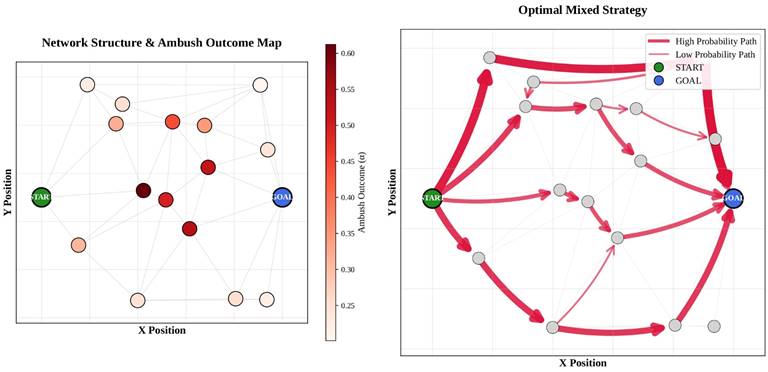
Multi robot trajectory optimization using opinion dynamics
Student Name: B Sai Bhaskar Varma (PhD)
Year : 2023-2026
Motivation/Background Approach :
• To formulate a decentralized control law for trajectory optimization of multi agent systems (MAS) in an uncertain/dynamic environment, by using cooperative feedback.
• Collective decision making is critical in multi robot systems (MRS) to avoid deadlocks and collisions.
• To model the interplay/influence between one agent’s decision on others, which is challenging but crucial in decision making.

Robust and safe control of aerial cargo drones
Student Name: Sara Gomiero (PhD)
Year : 2023-2026
Motivation/Background Approach :
• Cargo quadrotors are strongly underactuated and subject to both external disturbances and load oscillations
• Commercial drones are usually embedded with PID controllers, but robust controllers are required for the safe inclusion of cargo quadrotors in the environment
• Robust controllers based on sliding mode and adaptive techniques are investigated to solve the trajectory tracking problem
• Robust observers are designed to estimate the disturbances and the states of the cargo drone
• Drones with cable-suspended payloads are revolutionizing social and economic sectors, in particular transportation and delivery
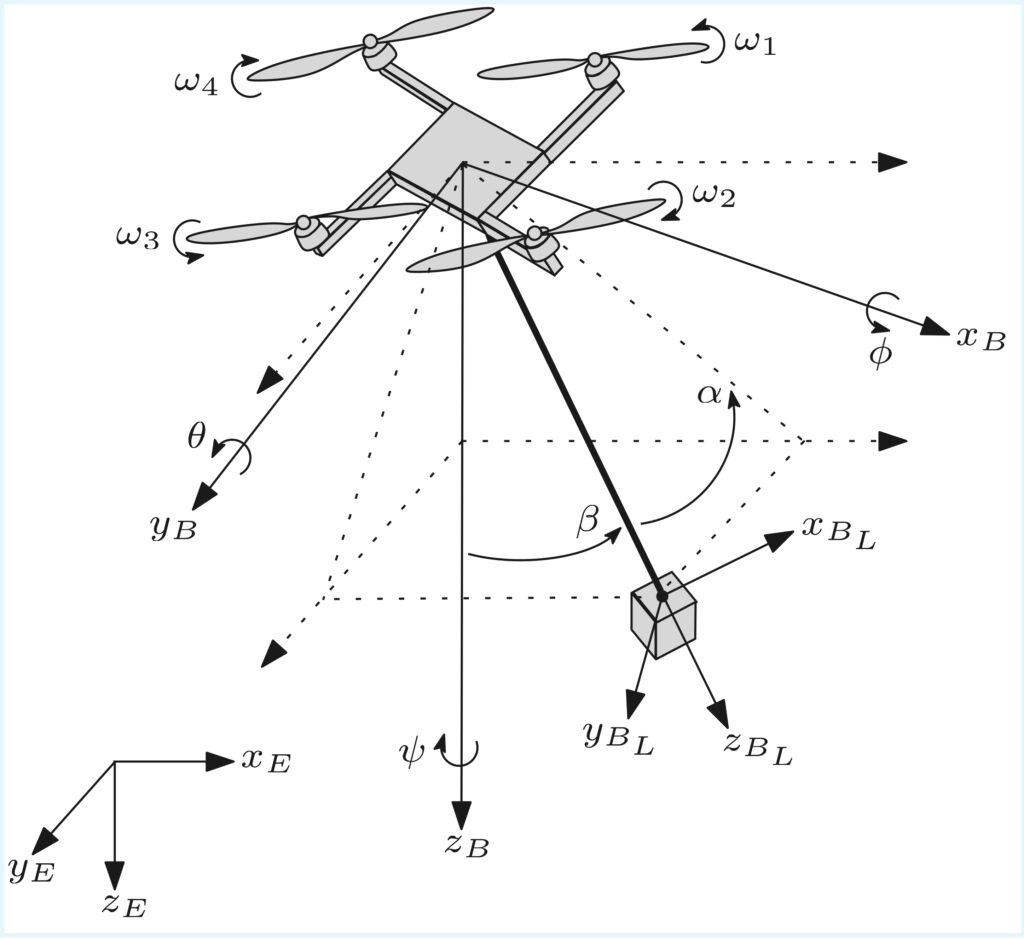
Multi-UAV-based system detection for Avalanche Victims
Student Name: Joel Enrique Esparza Ramirez (PhD)
Year : 2024-2027
Motivation/Background Approach :
The research proposes a multi-UAV-based system designed to accelerate the localization of avalanche victims by integrating advanced detection technologies and autonomous coordination strategies. Each UAV is equipped with sensors such as ARVA receivers and optical cameras, allowing real-time detection and visual confirmation of buried individuals. The system employs adaptive flight path algorithms and intelligent data processing to dynamically adjust search patterns based on environmental feedback, ensuring efficient area coverage and minimizing redundancy. Through simulation and field testing, the methodology aims to validate the system’s performance in terms of detection accuracy, operational robustness, and time efficiency.
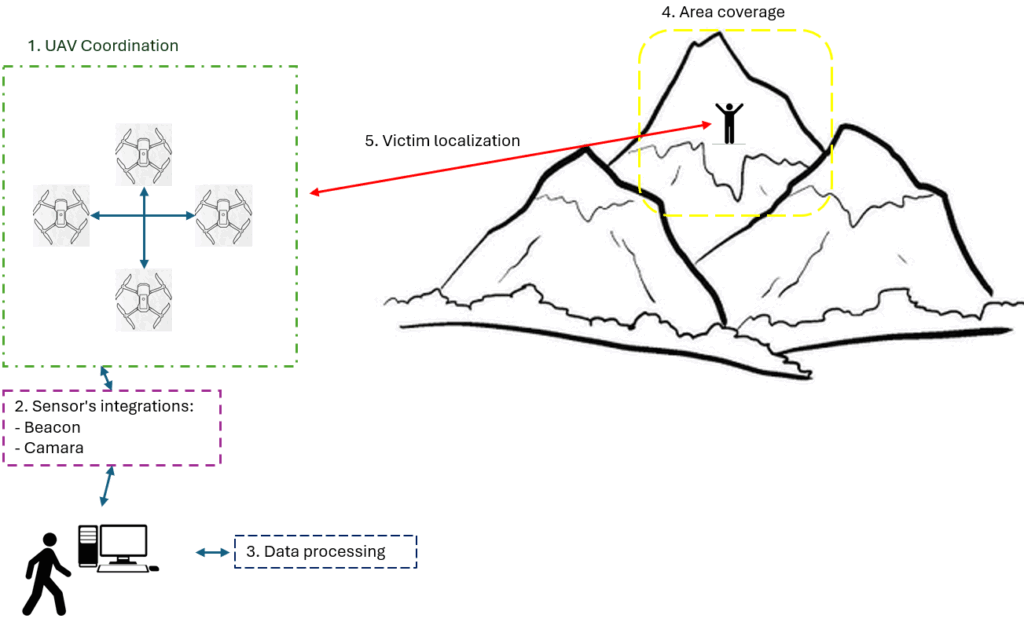
Unmanned surface vessel for surveying shallow inland water
Student Name: Fernanda Dalla Vecchia Gueter (Master)
Year : 2019-2020
Motivation/Background Approach :
- Water shortages due to and loss of aquatic biodiversity due to rapidly changing weather conditions & global warming
- Design an uncrewed surface vehicle to perform a survey of water depth to fill this gap
- Vessel that is cost beneficial, lightweight, and easy to transport and assemble while still having necessary attributes
- A stand-up water board is the body of the vessel.
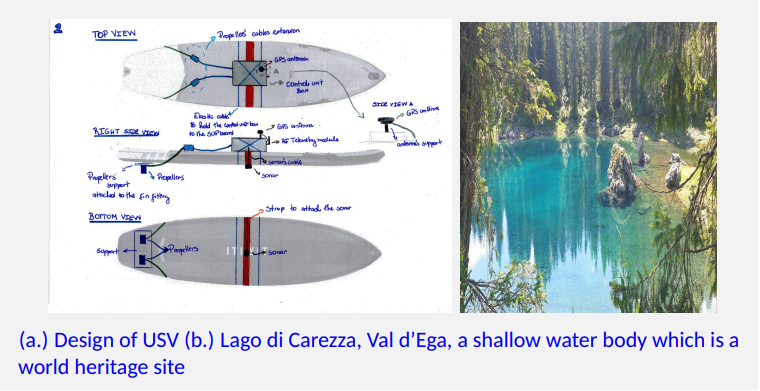
Development and testing of a mechatronic system and a ROS-based controller for a tracked off-road UGV
Student Name: Galli Davide (Master)
Year : 2022-2023
Motivation/Background Approach :
Agroforestry 3.0 is increasingly relying of agroforestry on robots to perform repetitive task like, since robots are able to overcome critical human constraints.
The aim it to develop from scratch the interface between the Mattro ROVO 2, a radio-controlled mobile platform, and the Nvida Jetson TX2, a broadly used developing platform, to obtain a system capable of driving around autonomously given some inputs.
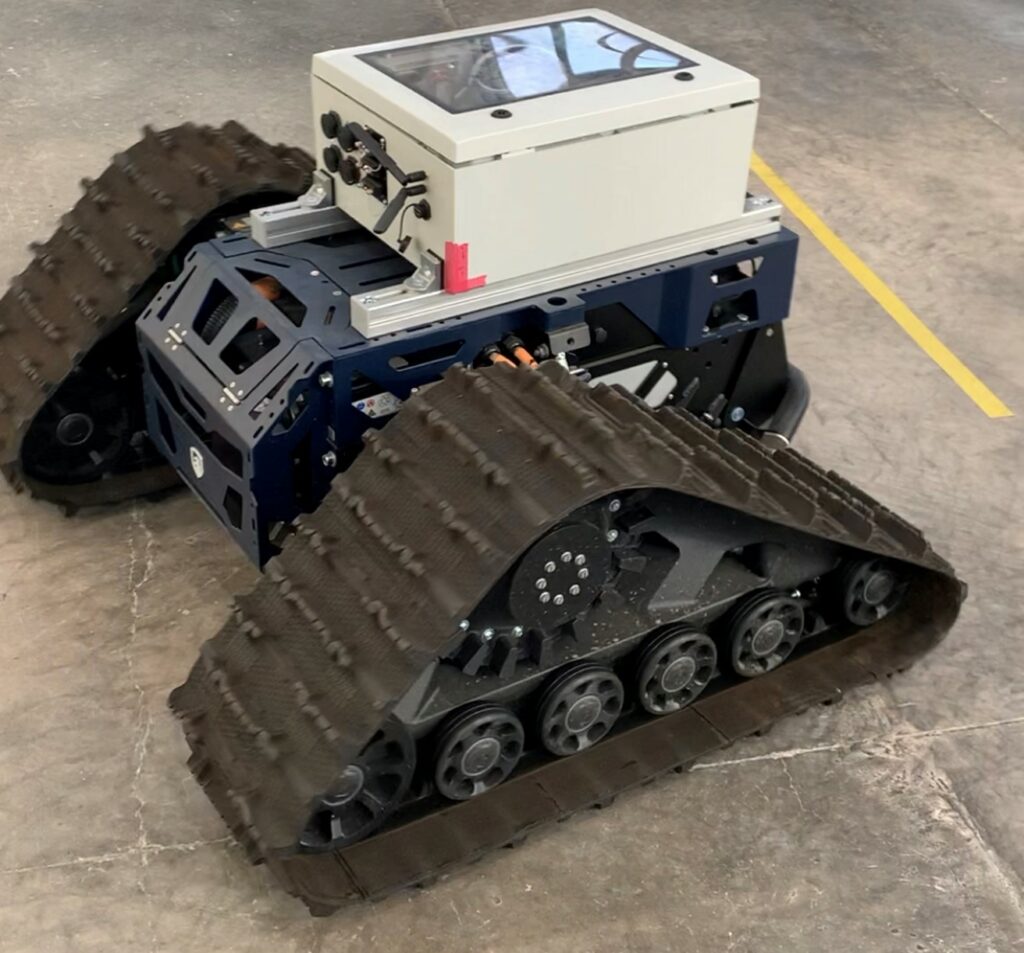
Development of a path planning algorithm for a trimming robot
Student Name: Manzardo Matteo (Master)
Year : 2022-2023
Motivation/Background Approach :
Nowadays, the operation of trimming an artistic bush is performed manually by skilled operators. The goal of the project is to automatize this operation by exploiting a robotic manipulator. In particular, in this project a method has been developed which automatically generates a path capable of cutting the bush in the shortest possible time and by performing an effective cut (precise and complete, i.e. every part of the bush is trimmed).
